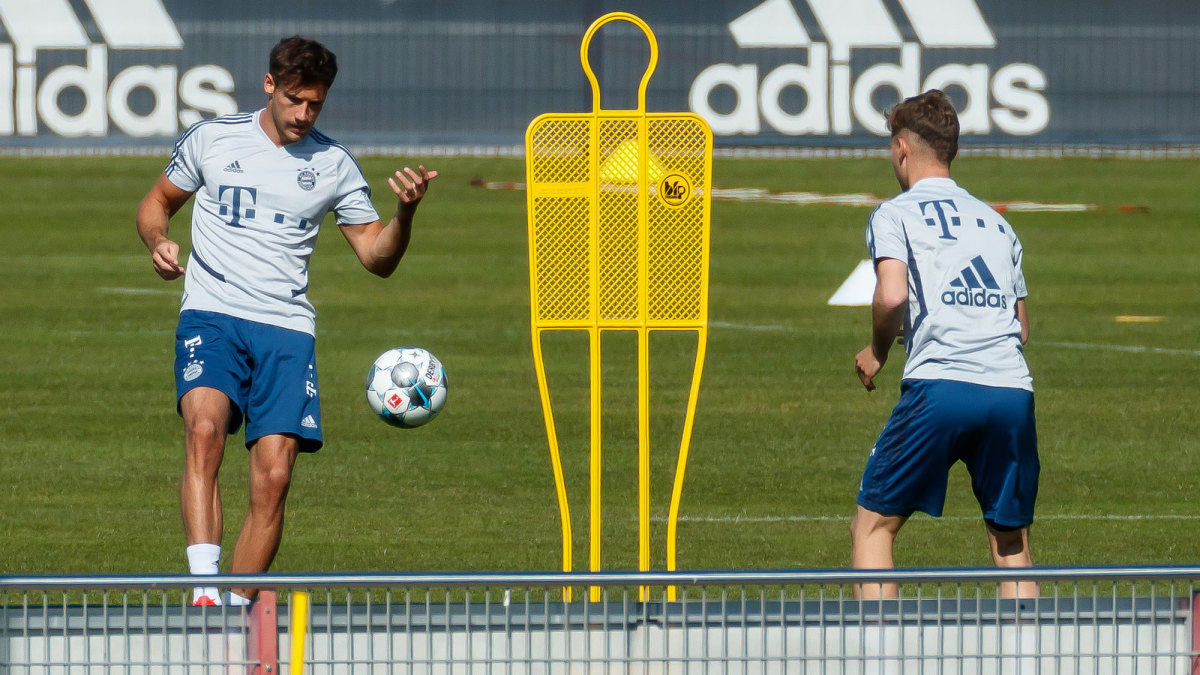The Risks of Return: Bundesliga's Bold Plan and Whether it Can Become a Blueprint
Eventually, after you’ve gone into lockdown, the question becomes: how do you come out? It’s one thing for officials and administrators to be slow to react to an unprecedented crisis–and it seems likely that the Atalanta vs. Valencia Champions League game in February was a significant accelerator in the spread of coronavirus in northern Italy, while serious questions are being raised about the wisdom of allowing Atletico Madrid fans to travel to Liverpool. It's quite another for them to legitimize the return of football while there is still a risk.
At some point, a decision has to be taken that the risk is low enough for football to continue, and in Germany, it appears that point has been reached. The head of the Bundesliga, Christian Seifert, announced this week than plans are in place for the Bundesliga to restart at the beginning of May, looking to have the season completed by the end of June. Matches will be played without fans, and it may be, Seifert said, that football has to remain behind closed doors until the end of the year.
That football would return without fans always seemed likely. Seifert estimates that 240 people are necessary for a game to go ahead–players, coaching staff, referees, ground staff, medics and television technicians–and it clearly is easier to ensure their safety than that of a crowd of tens of thousands. Nonetheless, that represents a significant logistical challenge and that it is even being contemplated suggests how advanced Germany has been in terms of its testing, certainly by comparison with the UK. That is also probably the major reason that although it has the fourth-highest total of recorded cases in Europe, Germany has by far the lowest death rate.
Seifert spoke of “a hygiene plan” for training and playing games, although quite what that may entail is unclear. He was clear, though, that no resources would be diverted from the healthcare system, that testing doctors and nurses must remain the priority. It was not made particularly clear what would happen were a player to test positive: clearly this is not the same as a usual football injury given the danger that player could have passed the disease on to his teammates, which would presumably mean the whole squad–not to mention everyone who could have come into contact with that player–going into some kind of quarantine.
Javier Tebas, the president of La Liga, has also discussed the possibility of football returning in Spain. He offered three potential dates this week–May 28, June 6 or June 28–although he made clear that he would be guided by the authorities. Spain remains under a stringent lockdown, which will not be lifted before April 26. He, too, acknowledged the likelihood that games would be played behind closed doors.
Although Seifert stressed the boost to national morale that the return of football would bring, offering a distraction and a sense of at least limited normality, there is also a financial imperative to getting football played again.
Tebas was explicit with figures, suggesting a loss of 1 billion euros to the Spanish game if it is not possible to conclude this season, 350 million euros if matches are played behind closed doors and 150 million euros even if fans were somehow able to return. Seifert estimated losses at around 750 million euros, saying that would place half of second-division sides and perhaps five Bundesliga clubs at risk of bankruptcy. And this, of course is the balance that must be struck: while public health must remain the priority, there must also be an awareness that jobs and cultural institutions are at risk.

Because Germany is a federation, with regulations set at a local level, there have been differing levels of lockdown in different places, but a national agreement was reached this week for all 36 professional sides to return to at least some level of training. Inevitably, there have been issues. Players are supposed to maintain social distancing, but when Corentin Tolisso and Kingsley Coman arrived at Bayern’s Säbener Strasse training complex they instinctively hugged each other. Coman then suffered an ankle injury, although it’s not thought to be serious.
The other news at Bayern has been the decision to give Hansi Flick, who had been in temporary charge, a contract until 2023. While he has done an excellent job so far, the timing of the decision would appear motivated by the general sense of chaos; there is no temptation to, say, wait and see if Paris Saint-Germain coach Thomas Tuchel might become available at the end of the season, largely because nobody knows when the end of the French season may be.
Although no public statement has been made in the UK, where the daily hospital death toll is nearing 1,000 per day and the probability is that the peak will not come for another week to 10 days, it seems unlikely the Premier League will begin again until July at the earliest. But the Bundesliga at least offers a glimpse of what the future may be and how, even without fans, football may be able to get going again.
